The top 9 teachers and volunteers of 1992
After months of deliberation, committees of alumni, faculty and students have come up with a list of nine exceptional people who have dedicated themselves to the University’s teaching and public service missions.
The winners of the Distinguished Teaching Award are Architecture Professor Hermann Pundt, Nursing Professor Susan Blackburn, Political Science Associate Professor John Keeler and Bioengineering Assistant Professor Christopher Viney. Winners of the Excellence in Teaching Award are Romance Languages and Literature TA Michael Faucette and International Studies TA Holly McClintock.
Other winners include Pediatrics Professor Emeritus Robert Deisher, Outstanding Public Service Award; John Mangels, UW Alumni Association Recognition Award; and Arthur Buerk, UW Alumni Association Distinguished Service Award. Brief profiles of the winners follow.
Hermann Pundt
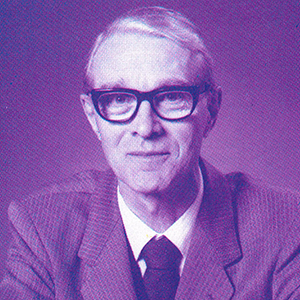
Hermann Pundt
Twice a year for the last 24 years Hermann Pundt has stood in front of the 300-odd students in his architecture appreciation course and tried to convey the cultural achievements of his field.
“I try to teach them how to see, not to look but to see,” he says in his soft German accent. “I tell them that two years from now, if you look up at a building in downtown Seattle and ask the question ‘Why?’ you have earned the A in the course.”
A 1992 Distinguished Teaching Award winner, Pundt is pleased that the Department of Architecture offers classes to non-majors. He and Professor Thomas Bosworth share the duties for Architecture 150 and 151, rather than leaving it to art history, as so many other schools do.
“You’ve either won or lost them after the first five minutes,” Pundt confesses about the lecture hall setting. His approach works. Hundreds of students who take the course as an elective suddenly find themselves in love with architecture and on their way to a new profession.
His most famous student is Steven Holl, an award-winning architect and Columbia University professor. In supporting Pundt’s nomination, Holl wrote, “He has instilled in me a hope and enthusiasm for architecture which I will humbly attempt to pass on to my own students.”
“Passion” and “commitment” are words often used to describe Pundt’s style. “It may seem trite to say that his style and course content made buildings come alive to me, but they did,” wrote one former student, now a successful architect.
This man who makes architecture come alive almost died in the rubble of Berlin. Born in Germany’s capital in 1928, he was only 16 when the Red Army stood at the city’s doorstep. Part of the pathetic brigades of teenagers and old men sent to defend the city, he was captured by the Soviets and destined for harsh treatment—or death—as their POW.
Instead, he crawled on his hands and knees for three days to reach the American lines. It was the first of many steps that would link him to his new country. After serving as an apprentice in a water-driven flour mill for five years, Pundt jumped at a family friend’s offer to sponsor him in the U.S.
Arriving in 1951, he was soon drafted by the Marines and trained for the Korean War. After the privations of post-war Germany, “boot camp was delightful,” he says. “There were enormous amounts of food and 12 pairs of socks.”
Discharged in 1954, Pundt soon found himself a naturalized citizen enjoying “GI Bill” benefits at the University of Illinois. There he received his B.A. and M.A. under Professor E.A. Connally before going to Harvard, where he earned his Ph.D. in 1969.
His specialties include both Old and New World architecture, which are reflected in his writings on the Berlin of Karl Friedrich Schinkel and the genius of Frank Lloyd Wright. “There is about him the spirit of an old-world, monastic scholar and pedagogue—hard-working, devoted, conscientious, single-minded, sometimes fanatically so,” says Architecture Chair Doug Kelbaugh.
Pundt believes in preserving values of the past. In Seattle he greatly admired the work of the late Victor Steinbrueck. He has helped UNESCO and the International Council on Monuments and Sites with several projects abroad. With the reunification of Germany, Pundt plans to help rebuild and restore two architectural masterpieces in former East Germany: the Dresden Frauenkirche and the royal palace of Sanssouci in Potsdam. —Tom Griffin, Columns Editor
Susan Blackburn
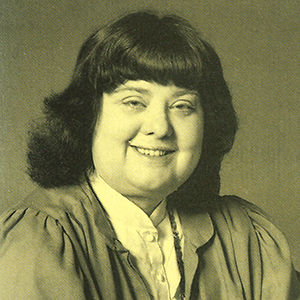
Susan Blackburn
When Susan Blackburn graduated from college with a B.S. in nursing in 1966, she wanted to work as a nurse, not a teacher. But even as a nurse she found herself in the role of educator: teaching parents how to care for their high-risk newborns and orienting nurses and others who worked with the tiny, sick patients in the neonatal intensive care unit.
“I enjoyed that, but it made me realize I needed a stronger theoretical base,” says Blackburn, who went back to school to get a master’s degree in 1973 and then a Ph.D. in 1979, both from the UW School of Nursing.
By the time she had her doctorate, the New Jersey native had plenty of teaching experience and a desire to better the training of nurses who care for high-risk babies and their parents. So Blackburn helped develop the Perinatal Nurse Specialist Program, which has evolved into a sequence on childbearing in the Department of Parent and Child Nursing.
As director of the program from 1981 to 1987 and now as professor of parent and child nursing, Blackburn “makes us all aware of our responsibility to create a rich learning environment for graduate students,” says Department Chair Marcia Killien. “Her commitment to students extends beyond the classroom to spending significant time and energy securing funding for student aid and providing mentorship.”
The best professors touch their students in ways felt beyond the classroom, and Blackburn has succeeded admirably, says Nursing Professor Nancy Woods.
“She has shared the breadth and depth of her knowledge with several … students who, in collaboration with her, have transformed the nature of care available to women and infants during the perinatal period,” Woods says.
Students consistently give Blackburn evaluations of 4 to 5 on a 5-point scale. One former student, Lt. Col. Jane K. Sweeney of the Army Medical Specialist Corps, says Blackburn’s special gift is “mastery of the art of guided inquiry and critical thinking.”
What qualities did Blackburn find in her best teachers? “An interest and excitement in working with students at all levels and being open to trying creative strategies,” she replies. She considers teaching “an interaction between the teacher and the learner. At times the learner becomes the teacher and the teacher becomes the learner. It’s a dynamic process.” —Kathleen Klein, UW Health Sciences News & Information
John Keeler
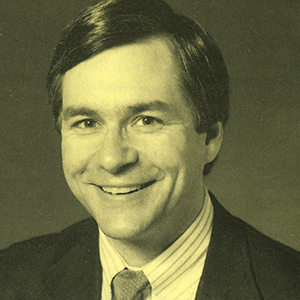
John Keeler
She came into John Keeler’s political organizations seminar wearing a Metro bus driver’s uniform. Keeler, a veteran of the exclusive Middlebury College in Vermont, thought to himself, “She can’t have much time to be engaged in this class.”
But the young political science professor soon shed himself of that prejudice. “I found she was extremely bright and much more dedicated than the other students. She had a lot of potential.”
Keeler discovered this bus driver (and former Boeing machinist) wasn’t sure about her career direction. She hadn’t even considered graduate school, but Keeler encouraged her to try. His encouragement worked. After a full fellowship at MIT, this former student became a professor at Yale and Claremont Graduate School.
Seeking out the best in his students is one reason Associate Professor John Keeler won a 1992 Distinguished Teaching Award. No matter what their background, Keeler has a knack for connecting.
“His ability to make abstract and complex concepts interesting and accessible to undergraduates is extraordinary. He does a better job of connecting these ideas to actual events (often in a humorous manner) than any other teacher I have known,” says Political Science Chair Donald McCrone.
The 42-year-old Keeler says it’s easy to make those connections when your topic is American foreign policy or Western European governments. Thanks to the daily headlines, “it’s hard to get students bored,” he claims.
“There’s always a political drama to discuss. If it isn’t the Gulf War, it’s the Iranian hostage situation or Bush’s trip to Japan.”
Keeler says there’s no secret to great teaching. As chair of political science’s Undergraduate Program Committee, he sees plenty of student evaluations. Two common themes run through favorable evaluations: organization and enthusiasm.
“I show students that I care about these things. If you do it right, it’s contagious.”
Keeler is the son of a Navy pilot and grew up in Washington, D.C., and San Diego. He set his sights on law school as an undergrad at USC, but when Nixon invaded Cambodia in 1970 and students died at Kent State and Jackson State, his aim faltered. “Those events forced students of my generation to rethink their principles and career goals,” he recalls.
He spent that summer at a Cambridge University program in England and came back “thinking about politics.” He hasn’t stopped since, earning his M.A. and Ph.D. at Harvard, teaching at Middlebury, and coming to the UW in 1980 as a specialist in European government.
In both his graduate and undergraduate classes, he shares his research into reform governments of the left and the right. Currently, he is finishing a book on several reform governments, concentrating on Margaret Thatcher’s years in Great Britain and Francois Mitterrand’s tenure in France. —Tom Griffin, Columns Editor
Christopher Viney
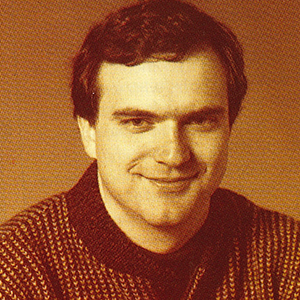
Christopher Viney
At 32, Christopher Viney is far too young to be called a legend. That’s the kind of accolade which sometimes is casually tossed at athletes, not university professors.
But Viney’s teaching talents, admired by his faculty colleagues and students alike, have attracted that label and have earned him a 1992 Distinguished Teaching Award. In the brief span of about five years at the UW, Viney, an assistant professor of bioengineering and adjunct assistant professor in materials science, has built an enviable record as both a creative researcher and outstanding educator.
He is the kind of instructor who attracts students to his classes simply because he is teaching a course. One former graduate student describes his reaction this way: “From the first day of class it became obvious that Dr. Viney was exceptional. I soon found that my lecture notes were so valuable that I had them bound as a personal reference text.”
Once in the classroom he captures and challenges students with what Engineering Professor Buddy Ratner calls an ability to “communicate state of the art information and an infectious joy about the excitement of science.”
The British-born Viney’s own fascination with learning began when he was growing up in South Africa, where he had a series of outstanding teachers. “My own scientific career has gotten jump starts from people when I was at critical times,” he recalls. One high school teacher introduced Viney to the teacher’s brother, a chemistry professor who let Viney wander through his labs.
Viney studied physics, metallurgy and material science at Cambridge University, where he earned his Ph.D. in 1983. He was a “postdoc” and lector at Cambridge until 1986, when he came to the U.S. as a visiting scientist for IBM. His Bellevue-born wife, Lisa, wanted to return to the Seattle area, and Viney left IBM for the UW in late 1987.
The beneficiaries of Viney’s teaching extend beyond the boundaries of the UW campus. He has taken science to elementary, junior high and community college students and he helped develop a display at Seattle’s Pacific Science Center.
When teaching, his goal is to relate to each student individually and to encourage him or her to think and pose questions. “I want students to think, not just learn. I don’t get upset if they ask questions. The reason they are in class is they presumably have questions and are here because they don’t know everything. I encourage them to speak. The only crime is to persist in ignorance by not asking.” —Joel Schwarz, UW College of Engineering
Michael Faucette

Michael Faucette
Douglas Collins was reviewing student evaluations for Romance languages, the department he chairs, when this eye-popper hit him: a 4.92 “course-as-a-whole” rating (on a scale of 5) in second-quarter Italian. What’s more, the instructor was a teaching assistant, Michael Faucette.
Collins had never seen a rating that high for a course at that level. Never one to leave superb enough alone, Collins dared Faucette to top that performance. A $100 book store gift certificate was the prize. “Our discretionary budget is $100 poorer,” Collins reports, “for top it he did with an astounding 5.0.”
In his six years as department chair, Collins says, he has never encountered someone who deserves an Excellence in Teaching Award as much as Faucette.
Nor has Collins ever met or even heard of somebody with Faucette’s background entering the discipline. The TA spent five years in Florence studying Italian, teaching English and writing for an English-language newspaper after graduating from Cal-Berkeley. “He must be the only African American from Oakland in this country who happens to teach Italian for a living.”
Fresh from Italy—after a stint in Alaska as a firefighter—Faucette earned a his UW master’s degree in a department-record one year, teaching all the while. He’s now planning his dissertation; his scholarly interest is early 20th-century Italian fiction.
Between studies and teaching is, well, more teaching. “He met voluntarily and informally with students outside of class,” says one first-year Italian student who Faucette later helped to enroll in a school in Italy. “We had class at 8:30 in the morning, but most of us arrived between 7:30 and 8:30 to take advantage of the extra opportunity.”
Faucette immerses his students in the language and culture. They meet for class at Italian restaurants, screen Italian movies, thumb through Italian architecture magazines. After the first few minutes of the first class, English is abandoned. ‘I’m adamant about speaking only Italian in class,” Faucette says. “It can be very intimidating to lose the comfortable crutch of one’s own language. Some people are terrified at first, but ultimately they appreciate it.” Says one appreciative student, “Going to his class every Michael Faucette morning was like taking a short trip to Italy, and every day I would fall in love with the language.”
Despite the high evaluations and legions of students swearing that Faucette is the best teacher they’ve ever had in any subject, Faucette was surprised by this honor.
“When I got a message to call President Gerberding,” he says, “my first thought was, ‘What did I do?’ I could not even imagine why he would be calling me.” When Faucette found out, he was, possibly for the first time since infancy, speechless. Even in Italian. —Bill Cannon, UW News & Information
Holly McClintock
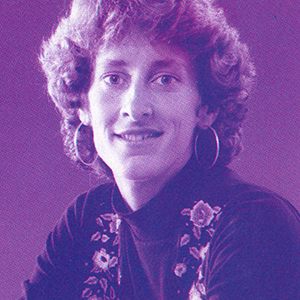
Holly McClintock
How good is teaching assistant Holly McClintock? So good that International Studies Chair Joel Migdal has had her teach sessions to graduate students enrolled in his course on “teaching teaching assistants to teach.”
She’s so good that she was the subject of a study by the Center for Instructional Development and Research, a UW unit which normally observes classes and suggests ways instruction could be improved. Center members wanted to learn why McClintock was doing so well.
So did the introspective TA. “I know I’ve done the right things,” McClintock says. “I just didn’t know why they were right.” For example, she learned she was giving students tons of non-verbal encouragement—nodding, head-shaking, eye contact. This put students at ease, told them it was OK to share their thoughts with the class. In a class where discussion is dominated by men, McClintock would stand by the desk of a woman who seemed to want to speak. McClintock learned that this focused attention from the yakking guys toward the woman, linking her with the rest of the class and giving her an entree to speak.
McClintock, in her fourth year as a TA, is now a consultant for the instructional center. She holds a master’s in international studies and is on her way to a doctorate in social and cultural anthropology, studying, she says; “feminist sexual politics and how it fits into state-building.”
McClintock was self-taught in international studies even before she came to the UW. She’d already worked in China, the Sudan, Israel and Fiji for the Peace Corps and other international development groups.
“She is able to establish links between what she teaches and her own intellectual and personal experiences,” observes International Studies Professor Resat Kasaba. Adds Migdal, “She has a knack for making people think of old material in new ways.”
Students are taken by her drive to help them think critically about issues and by her enthusiasm and patience. “When I took my first international studies class, I was lost and overwhelmed with the course and seriously considered changing my major to drama,” says one student. “Holly noticed my anxiety and took time to show me how to approach my courses.” The student stayed with international studies. “She has touched my life like no other teacher.” —Bill Cannon, UW News & Information
Robert Deisher
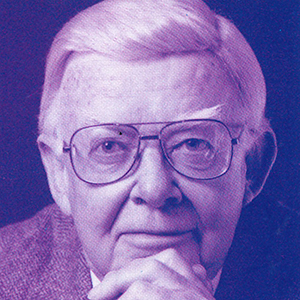
Robert Deisher
The winner of the 1992 UW Outstanding Public Service Award takes compassion and health care to street kids, on their own turf, on his own time.
Twenty years ago, Dr. Robert W. Deisher started an evening clinic in Pioneer Square one night per week to provide free, easily accessible medical services to street kids. One clinic grew to three, and for two decades he has been operating them without funding, relying on volunteers and donated space and medical supplies.
“People in programs with multimillion dollar budgets in other cities tell me you can’t provide medical care without a lot of money. I’ve been doing it for 18 years,” Deisher said in a 1989 interview.
That same year he helped Youth Care, a shelter agency, design and implement a program that has provided transitional housing for young people seeking a positive alternative to street life.
Deisher, professor emeritus of pediatrics and founder of the Division of Adolescent Medicine, has been a catalyst for community-based health care throughout his career. In 1949, upon his arrival at the University, he established one of the first well-child clinics in the United States.
A few years later, Deisher developed a system of comprehensive care for children with mental retardation. His model, which was adopted nationwide, demonstrated that the complex care required by these children can be furnished in the community, not just in an institution.
“The programs which he started 40 years ago in the areas of child health and normal child development, then for the mentally retarded and handicapped and now for the street children are innovations that have provided outstanding public service both directly for our community and … for the public at large in this and other nations,” says Pediatrics Professor Emeritus Ralph Wedgwood.
“He is personally responsible for improving the medical services for incarcerated juveniles in Washington state,” adds Dr. Abraham Bergman, pediatrics director at Harborview Medical Center and a 1989 winner of the same award. His efforts at Echo Glen Children’s Center and the Seattle-King County Youth Service Center have resulted in better medical care for incarcerated youth.
From 1973 until his retirement in 1986, Deisher directed the Division of Adolescent Medicine. Retirement did not diminish his involvement with youth at risk. He continues to delve into areas long ignored—conducting research into the problems of young male prostitutes, investigating ways to improve the pregnancy outcomes of homeless adolescent mothers and striving for the compassionate handling of gay and lesbian adolescents. —Cheryl Dawes, UW Health Sciences News & Information
John Mangels

John Mangels
With typical modesty, John Mangels says he was “stunned” to learn he would receive the UW Alumni Association Recognition Award for 1992. Mangels—retired chairman and CEO of Security Pacific Bank Washington—has been an active volunteer for the University for more than a decade.
“Education underlies virtually everything in our society,” says Mangels. “We’d have a far less desirable community without the University of Washington. It’s important that it thrive.”
Mangels graduated from the UW in 1950 with a degree in economics. A summer job with the National Bank of Commerce (which became Rainier National Bank, then Security Pacific Bank of Washington) turned into a career, and Mangels eventually became head of the bank.
“What qualifies John Mangels for this award is not only his commitment to the UW, but also the quality of his leadership, both as a volunteer for the University and in the community,” says Marilyn Dunn, UW vice president for development.
Among his UW activities, Mangels is a founding member of the UW Foundation Board of Directors, past chairman of the President’s Club Board of Trustees, and a member of the Department of History Visiting Committee since 1983. Volunteer service outside the UW ranges from social services (chairman of United Way of King County in 1985) to the arts (trustee of the Corporate Council for the Arts 1987-88).
His legacies at the University include three endowments. He and his wife, Mary Ann, contributed a fellowship for graduate students in Pacific Northwest History interested in working with museums and community historical groups. He played a crucial role in Security Pacific’s $1 million campaign gift, which included endowed fellowships for minority graduate students and an endowed lectureship for distinguished minority scholars. At the bank’s request, the lectureship is named for John and Mary Ann Mangels.
“We have to bring all Americans into the mainstream of our society,” says Mangels. “If there are a great number of individuals who are not prospering, intellectually or financially, our society cannot prosper. Whether you are in education, or business, or the arts, I believe you have to do what you can to help.”
“Such a human vision is characteristic of John Mangels,” says Dunn. “It’s part of the personal and professional integrity that makes him so deserving of this award.” —Antoinette Wills, UW Office of Development
Arthur Buerk
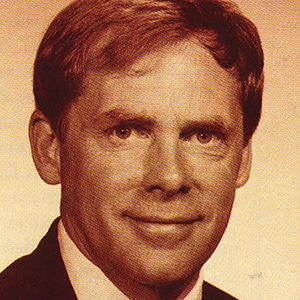
Arthur Buerk
The University of Washington Alumni Association is not the same place it was in 1986, when Arthur Buerk came on the Board of Trustees. Building on the strengths of past presidents and the alumni staff, Buerk says he wanted to give the association “a real jolt.”
As a board member and the 1989-90 UWAA president, it has been an electric performance. When Buerk started on the board, membership stood at about 25,000. When Buerk stepped down as president, it had doubled to about 50,000.
Under Buerk’s guidance, the association also revamped its members-only magazine by changing its name to Columns, creating a new design and securing enough support to send it to all UW alumni.
For his “visionary” contributions to the University and its alumni association, Buerk has been named the 1992 UWAA Distinguished Service Award winner. “He has been a driving force in determining the growth and direction of the UWAA,” says Alumni Association Executive Director Jon K. Rider.
Buerk’s accomplishments also include expanding the class reunion program, reviving the Legislative Support Network and starting the Mentor Program, which matches alumni with freshmen Educational Opportunity Programs students.
Using his own background in business and fund-raising, Buerk sent his jolt through the association by “getting it into a strategic mode, rather than operating on a year-to-year basis.” The association is still following the outlines of a five-year strategic plan he helped write during his presidency.
A 1958 graduate of the UW School of Business, Buerk remembers his years on campus fondly, including stints as the head manager of both the football and basketball teams and as a campaign manager for ASUW candidates.
After earning an M.B.A. at Harvard and a career in business, Buerk came back to the UW in 1968 to head a nascent development program. Before he arrived the UW had raised about $40,000 in its annual giving fund. When Buerk left in 1977, fund-raising coffers held $12 million for that year.
Currently president of Manus Services Corp., Buerk says the support of his wife and family have enabled him to serve the UW over the years. He says this service should come naturally to any alumnus. “The University is the single greatest resource in the state, if not the Northwest. In the future knowledge will be much more important than products or service. Giving to the University is the greatest investment on earth. It’s the wave of the future, and people have to protect it.” —Tom Griffin, Columns Editor